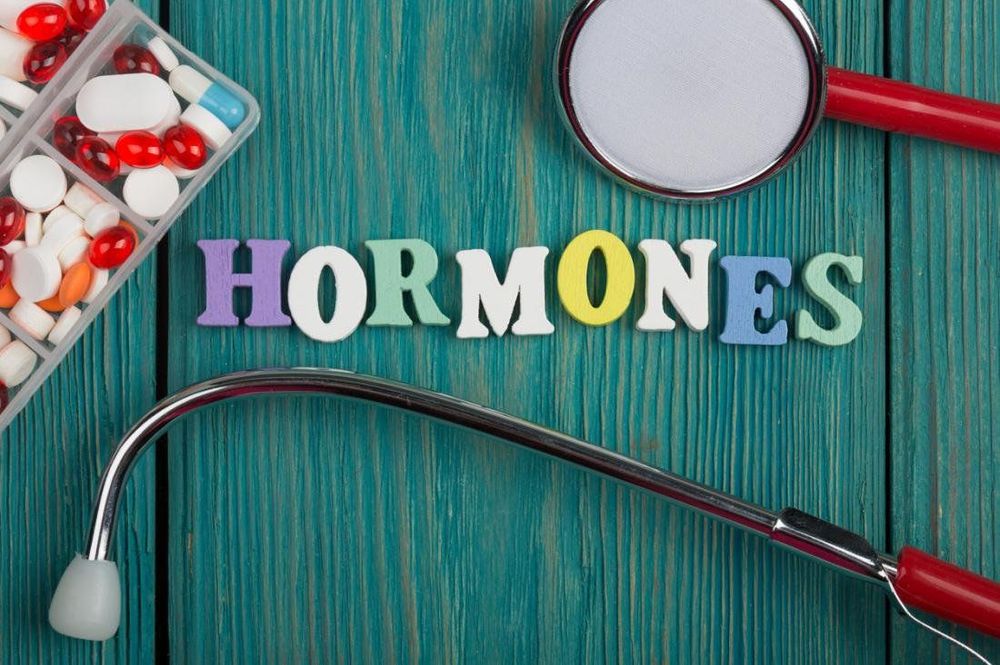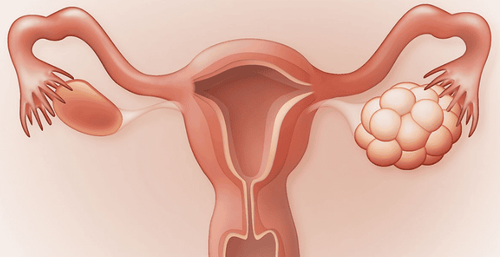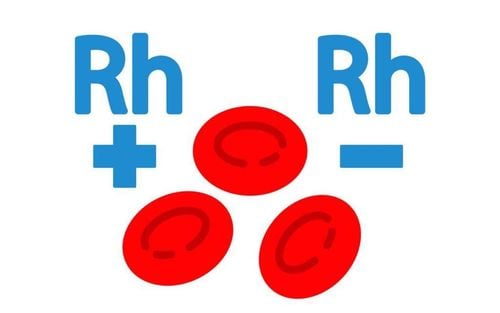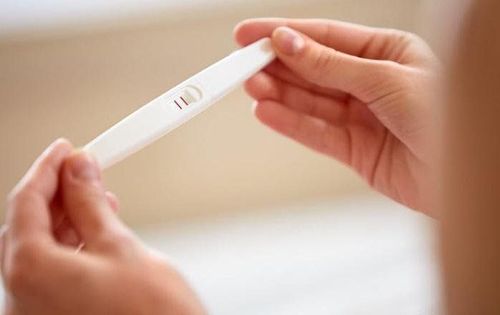This is an automatically translated article.
The article was professionally consulted by Specialist Doctor Obstetrician and Gynecologist - Department of Obstetrics and Gynecology - Vinmec Hai Phong International General Hospital.
Miscarriage is a phenomenon that occurs in about 12% of women who know they are pregnant, most miscarriages usually occur early in the first 3 months of pregnancy. There are many causes of miscarriage, some of which are due to maternal factors.
Causes of miscarriage due to maternal factors include:
1. Mother's age
If the mother becomes pregnant before the age of 30, the miscarriage rate is 10%. If you get pregnant after the age of 35, the miscarriage rate is 20%. If the pregnancy is over 45 years old, the pregnancy rate is over 50% of all pregnancies.
2. Systemic diseases
Because the mother has chronic diseases such as heart disease, kidney disease, hypertension, lupus, hypothyroidism, diabetes,...
Hypothyroidism is a state of decreased thyroid hormone levels in the blood. Hypothyroidism during pregnancy can lead to anemia, low birth weight, miscarriage, or stillbirth.
In women with diabetes, the risk of miscarriage depends on the level of blood sugar control, if good control of blood sugar in the first 21 days will reduce the risk of miscarriage. Gestational diabetes is a condition in which high blood sugar is detected for the first time during pregnancy. Women at high risk of gestational diabetes are those who are overweight, obese, have a history of abnormal glucose tolerance, become pregnant after the age of 35, etc. Gestational diabetes will increase the risk of infection. bacteriuria, preterm birth, miscarriage and stillbirth.

3. Infections
If the mother is infected with Rubella, Toxoplasma, influenza virus, malaria, pneumonia, typhoid,... in early pregnancy, the toxicity of these bacteria and viruses will cause fetal death or condition The infection will cause high temperature in the mother's body, causing uterine contractions and leading to miscarriage.
4. Immune System Disorders
In some cases, early miscarriage is caused by an immune disorder in the mother's body. The mother's immune system sees the fetus as a foreign graft in the uterus, so it will seek to remove it. The mother's body will produce phospholipid antibodies that attack the fetus and cause miscarriage.
5. Endocrine disorders
Endocrine disorders that can cause miscarriage, for example, low gonadotropin hormone hCG, decrease in estrogen, progesterone, hyperandrogen, hyper or hypothyroidism,...

6. Abnormal uterus, cervix
About 10% of miscarriages are due to uterine causes.
Congenital or acquired abnormalities in the uterus that can cause miscarriage such as:
Uterine underdevelopment, small uterus, uterus with large or multinucleated fibroids, Uterine abnormalities such as uterus double uterus, bicornuate uterus, septal uterus Uterine septal opening due to cervical laceration can cause sudden miscarriage in the second trimester of pregnancy, labor occurs very quickly after several strong contractions and Amniotic fluid rupture, no warning signs, cervix dilated but the mother does not feel pain. A weak or irregular cervix can also cause miscarriage. Through the first 3 months of pregnancy, the fetus can affect the cervix, if the cervix is abnormal or too weak, it will not be able to keep the pregnancy in the uterus, causing miscarriage.
7. Polycystic Ovarian Syndrome
Polycystic ovary syndrome is a condition in which the ovaries are larger than normal, when women have sex hormone disorders, high levels of the male hormone testosterone in the body affect the menstrual cycle and ovulation. Not only causing infertility, polycystic ovary syndrome also causes early miscarriage because polycystic ovaries lead to insulin resistance. This condition will interfere with the formation and development of the endometrium, making it difficult for the fetus to attach to the uterine wall, leading to miscarriage.

8. Caused by eating
An unsafe diet, a weakened mother's body, and a lack of vitamins, especially vitamin E, increase the risk of miscarriage.
In addition, food poisoning is caused by eating contaminated food such as: Listeriosis from untreated dairy products;
Toxoplasmosis, Salmonella infection from raw foods, undercooked meat, eggs, etc. also increases the risk of miscarriage.
9. Cause of drug use
Some drugs used by the mother to treat the disease increase the risk of miscarriage such as:
ACE inhibitors (Captopril, Enalapril, Quinapril,...), Angiotensin II receptor antagonists (Losartan, Telmisartan) , Valsartan,...) used in the treatment of hypertension. Non-steroidal anti-inflammatory drugs (NSAIDs) such as Ibuprofen, Diclofenac, ... used in cases of pain and inflammation Methotrexate: drugs for rheumatoid arthritis Retinoids: drugs for acne and eczema.
10. Other causes
Rh factor incompatibility between mother and fetus. Trauma: Pregnant women are affected by strong, sudden trauma or small but continuous trauma that can cause miscarriage. These traumas can be physical trauma such as surgery, abdominal trauma or emotional trauma caused by fear or over-emotion. Occupation: If a pregnant woman works in a hazardous, unprotected environment, it can cause miscarriage. Lifestyle: If the mother smokes, the nicotine in cigarette smoke crosses the placenta and interferes with the blood supply of nutrients from the mother to the fetus. In addition, if the mother drinks a lot of alcohol, uses stimulants, alcoholic beverages, abuses drugs, ... will also affect the fetus and cause the risk of early miscarriage.
If you have unusual symptoms, you should be examined and consulted with a specialist.
Please dial HOTLINE for more information or register for an appointment HERE. Download MyVinmec app to make appointments faster and to manage your bookings easily.













